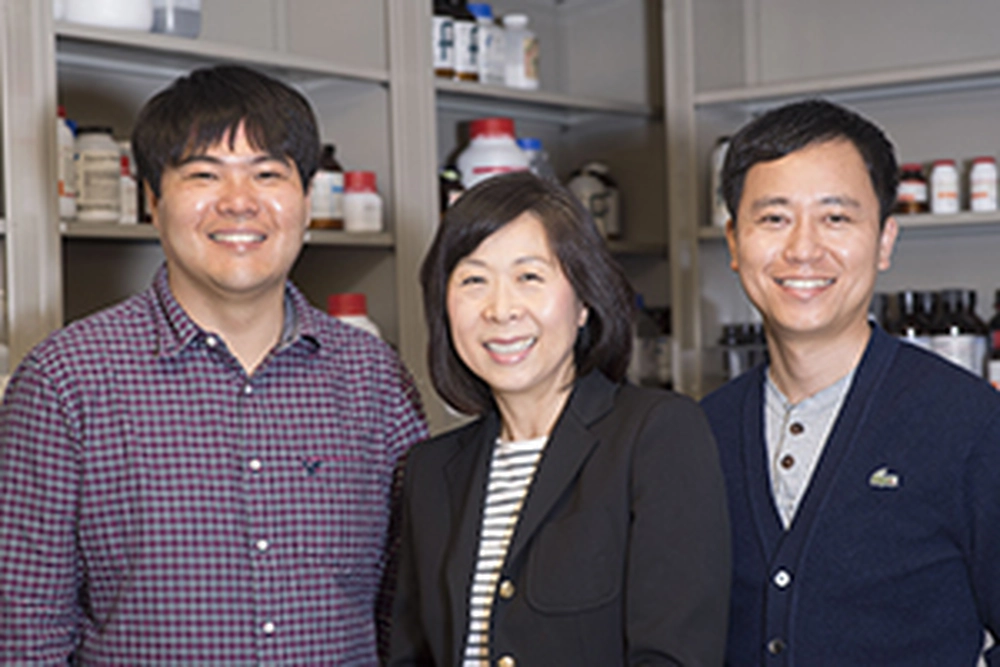
Molecular and Integrative Physiology Professor Jongsook Kemper, postdoctoral fellow Sangwon Byun (leading author of the study), research scientist Young Kim, and colleagues publish results in The EMBO Journal
Autophagy or “self-eating” is a highly conserved catabolic process that digests and recycles cytoplasmic components and damaged organelles in cells and is essential for cellular survival under nutrient-deprived conditions. After a meal, autophagy is suppressed to maintain homeostasis and normal cellular functioning. Defective autophagy is associated with many diseases and promotes cellular aging, but excess autophagy is also harmful because it may lead to cell death and provide nutrients for tumor growth. Autophagy must, therefore, be tightly regulated to maintain homeostasis and for normal cellular functioning.
Molecular and Integrative Physiology Professor, Jongsook Kim Kemper, the leading author of the study, Sangwon Byun, Young Kim and colleagues identified a novel postprandial FGF19-SHP-LSD1 pathway that epigenetically represses hepatic autophagy gene networks in response to feeding, published in the EMBO Journal. Their findings could have important implications for the treatment of human diseases associated with autophagy dysfunction, including metabolic disorder, neuro-degenerative disease, and cancer.
Autophagy is known to occur under extremely stressful starvation conditions, but recent studies from the Kemper’s group and others showed that it also occurs during fasting/feeding cycles under normal physiological conditions. Autophagy was also thought to be mainly regulated acutely by nutrient-sensing cytoplasmic kinases, such as mTOR and AMPK, that phosphorylate autophagy-related proteins, but recent studies from the Kemper lab demonstrated that nuclear transcriptional events are also important for sustained autophagy regulation. This new study shows that in response to feeding or treatment with a late fed-state hormone, FGF19, SHP recruits the epigenetic regulator LSD1 histone demethylase to a subset of autophagy genes. LSD1 mediates the demethylation of histones at the autophagic genes, which results in epigenetic repression of these genes and decreased autophagic flux and macroautophagy, including lipophagy. An earlier study from the Kemper lab (Nature, 2014) had shown that another feeding-sensing bile acid nuclear receptor, FXR, also directly inhibited autophagy genes early after a meal. FXR also induces expression of both FGF19 and SHP, which act later in the late-fed state, which effectively sustains postprandial repression of autophagy.
This study was supported by grants from National Institutes of Health and American Diabetes Association to Prof. Kemper and a post-doctoral fellowship to Dr. Byun, and a scientist development award to Dr. Kim, both from the American Heart Association.
